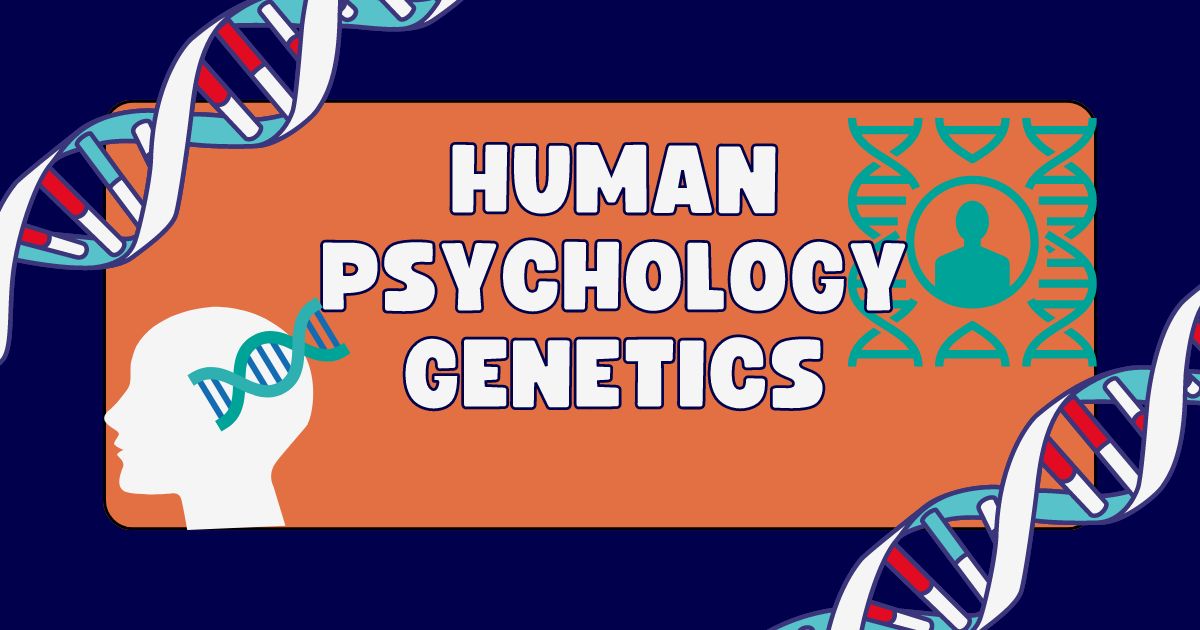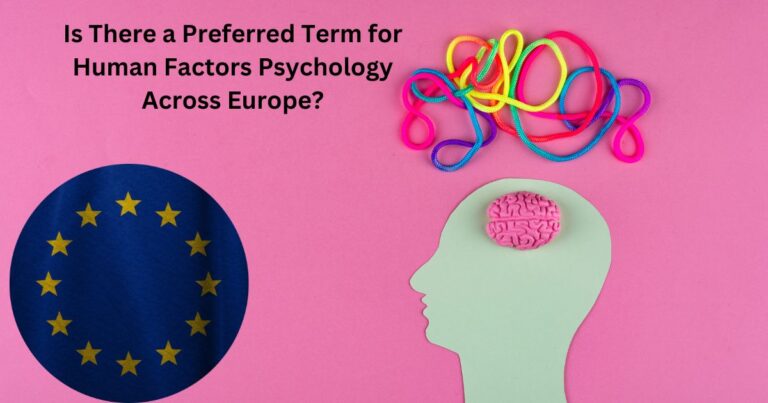
Introduction:
Human Psychology Genetics
Human psychology and genetics are two fields that entwine to make sense of the ways of behaving, contemplations, feelings of people. This article digs into the captivating universe of human genetics, investigating what our genetic makeup means for psychological cycles behaving.
What is Human Psychology Genetics?
Human psychologygenetics is the study of how genes influence psychological developments and behaviors. It combines standards psychology, which examines mind behaviour, with genetics, research heredity.
The Role of Genes in Psychology
Genes are segments of DNA that convey the instructions for the development, functioning, growth and reproduction of all residing organisms. In human beings, genes can influence a wide range of psychological tendencies,which include:
Personality Traits: alike as extraversion, affability, and neuroticism have genetic components.
Intelligence Genetic:factors contribute to cognitive capacities and intellectual performance.
Mental Health Conditions: like depression, anxiety, and schizophrenia have been linked to genetic variations.
How Genetics Influence Behavior
The influence of genetics on behavior can be understood through several mechanisms:
Gene-Environment Interaction:
Genes and environmental elements have interaction to form conduct. For example, a person may also genetic predisposition for high IQ, however without stimulating environment, they’ll no longer reach their full highbrow ability.
Epigenetics:
This refers to changes in gene expression due to factors without altering the DNA collection. Stress, eating regimen, exposure to pollution can lead to epigenetic adjustments that affect behaviour.
Key Areas of Research in Human Psychology Genetics
Research in human psychology genetics spans numerous key areas, each losing light on different factors of the interplay between genes and psychology.
| Key Area of Research | Description | Examples of Findings |
|---|
| Personality Traits | Study of genetic influences on personality characteristics | Twin studies show heritability of traits like extraversion and neuroticism. |
| Intelligence | Research on the genetic basis of cognitive abilities and intellectual performance | Genetic factors account for about 50% of the variation in intelligence. |
| Mental Health Disorders | Examination of genetic variations linked to mental health conditions | Genome-wide association studies (GWAS) identify genetic markers associated with depression, schizophrenia, etc. |
| Behavioral Genetics | Analysis of how genetic and environmental factors interact to shape behaviors | Studies on gene-environment interactions in behaviors like aggression and addiction. |
| Epigenetics | Investigation of changes in gene expression caused by environmental factors without altering the DNA sequence | Stress, diet, and toxins can lead to epigenetic changes affecting psychological traits. |
| Neurogenetics | Study of the genetic basis of brain development and function | Research on genes influencing neural pathways and neurotransmitter activity related to behavior. |
Personality Traits:
Personality is a complex trait influenced by multiple genes and natural variables. Studies have shown that specific character has qualities, like openness and honesty, are a huge hereditary part. Twin studies, which think about the similitude among identical fraternal twins, been instrumental in figuring out heritability of personality traits.
Intelligence:
Intelligence is another area where genetics play a crucial role. Research indicates that genetic factors account for approximately 50% of the variation in intelligence among individuals. Studies involving twins and adopted children have provided insights into heritability of intelligence.
Mental Health Disorders:
Mental health disorders are similar as depression, bipolar disease, and schizophrenia, have been linked to inheritable variations. Genome-wide association studies( GWAS) specific tags associated with these conditions. However, it’s important to note that genetics is just one piece of the secret, environmental factors also play a significant part in development of internal disorders.
The Future of Human Psychology Genetics
Progresses in innovation and examination strategies keep on pushing the limits of how we are understanding of human psychology genetics. Here are a few energizing improvements on horizon:
Personalized Medicine:
Personalized medicine tailors medical treatment to the individual characteristics of each case. In the environment of human psychology genetics, this could mean developing embodied interventions for psychological health diseases based on a person’s genetic profile. For instance, a person with a genetic proclivity to depression might avail from specific types of therapy or medication.
Genetic Counselling:
Genetic counselling involves advising individuals and families on the genetic aspects of health disease. As our understanding basis of psychological traits disorders grows, it can help make informed decisions about their mental well-being.
Ethical Considerations:
The field of human psychology genetics raises important ethical questions. These include concerns about privacy, the potentiality for genetic demarcation, and the criminations of inherited testing for mental health. As investigation progresses, it’ll be critical to address these ethical issues to secure that the benefits of human psychology genetics are realized in a responsible and fair manner.
Common Misconceptions About Human Psychology Genetics
Despite the improvements in understanding human psychology genetics, there are nevertheless numerous misconceptions. Let’s debunk some of the common myths:
Myth 1: Genetics Determine Behavior
While genetics play a significant role in influencing behavior, they do not determine it entirely. Environmental factors, personal experiences, and individual choices also shape behavior. The interplay between genes to the environment is complex, too dynamic.
Myth 2 Only One Gene Controls a Trait
Most psychological tendencies and behaviors are inspired by using multiple genes, each contributing a small impact. It’s the mixture of these genetic impacts, along with environmental factors, that shapes an individuality’s psychological make-up.
Myth 3 Genetic Research Can forecast the Future
Genetic exploration can give perceptivity into the liability of developing certain traits or diseases, but it can not vaticinate the future with certainty. The expression of genes is told by a multitude of factors, making it impossible to determine exact outcomes.
FAQs About Human Psychology Genetics
Q:What is human psychology genetics?
Human psychology genetics is the study to understand gene’s impact on mental trends and behaviors. It examines the role of genetic factors in shaping character, intelligence, and mental health.
Q:How do genes impact behaviour?
Genes impact behaviour thru mechanisms consisting of gene-environment interplay and epigenetics. They provide the blueprint for numerous developments, which can be then shaped by environmental elements and personal experiences.
Q:Can genetics decide mental fitness issues?
Genetics can make contributions to the hazard of developing mental fitness problems, however they’re no longer the sole determinant. Environmental elements, way of life, and personal experiences also play a full-size function within the development of intellectual fitness situations.
Q:What is the position of epigenetics in human psychology genetics?
Epigenetics refers to changes in gene expression due to environmental elements without changing the DNA sequence. Epigenetic modifications can affect conduct and contribute to the development of psychological trends and disorders.
Q:How can genetic studies benefit mental health?
Genetic studies can lead to personalized remedy, in which remedies are tailor-made to an man or woman’s genetic profile. It also can useful resource in genetic counseling, assisting individuals apprehend their genetic dangers and make knowledgeable choices approximately their mental health.
Conclusion
Human psychology genetics is a quickly developing field that holds the commitment of opening secrets of human psyche. We can develop more efficient treatments and interventions for mental health disorders by comprehending genetic basis of psychological and traits behaviors. However, due to complex interactions between genes environment and ethical implications, it is essential to approach this with caution. The insights gained from will undoubtedly contribute to improving our well-being as research continues to advance.







Наркологическая клиника: помощь профессионалов для вашей свободы
наркология в спб https://www.narkologicheskaya-klinika-spb-0.ru/ .